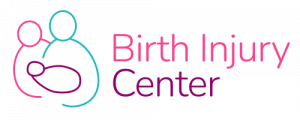Pregnancy Complications
Learning that you are pregnant can be a very happy and exciting time. Early in your pregnancy, it is a good idea to become aware of some obstetric complications — health problems that may impact the pregnancy. You’ll want to learn about and monitor yourself for signs of certain health conditions that can impact the baby’s delivery or your health and potentially cause birth injuries.

Home > Pregnancy Complications
- Last Updated Date: January 19, 2026
Birth complications can stem from a mother’s existing health condition or a health problem that develops during her pregnancy. Both physical and mental health issues can cause obstetric complications, as well as any medications a mother may take before or during pregnancy.
Many pregnancy complications are manageable, and birth injury risks can be avoided with precautionary steps and the right care.
Common Pregnancy Complications
Several obstetric complications may affect a mother-to-be. The most common include:
Antiphospholipid syndrome (APS)
This autoimmune disease creates antibodies that attack phospholipids (fat) cells in your body. Blood clots happen more easily with this condition that can lead to a stroke or clots in the lungs. Women with APS are more likely to experience pregnancy problems such as miscarriage.
Preeclampsia
This is a pregnancy complication where the mother develops high blood pressure during pregnancy — typically after 20 weeks in women with pre-pregnancy normal blood pressure. Preeclampsia is a serious complication that, if not treated, can be fatal for both mother and baby. You and your doctor will have to make challenging decisions about the risks of early delivery for the child and your own health risks if you wait for full-term delivery. On rare occasions, preeclampsia can develop after birth.
Gestational diabetes
This type of diabetes occurs in pregnant women who did not have diabetes before the pregnancy. Doctors should test for it at 24 to 28 weeks. Frequently a healthy diet and regular exercise can control gestational diabetes. Or the mother may need to take insulin. When not controlled, the disease can cause high blood sugar in the infant or cause fetal macrosomia, which Mayo Clinic defines as “a newborn who’s much larger than average.” Fetal macrosomia can complicate delivery and increase the risk of birth injuries for mother and child.
Cesarean section (c-section)
When a baby cannot be delivered vaginally, obstetricians will perform a surgery known as a cesarean section. This type of delivery is usually due to a birth complication. Most c-sections are done using regional anesthesia, so the mother is awake to see her new child right away. The mother will need more time to recover from a cesarean section.
Spontaneous abortion
A pregnancy loss without outside intervention before 20 weeks of gestation is called a spontaneous abortion. They happen in as much as 20 percent of recognized pregnancies. Women with a complete pregnancy loss rarely require treatment, while incomplete spontaneous abortions may require some level of medical management.
Premature labor
Premature labor, or preterm labor, happens when a woman goes into labor before 37 weeks of pregnancy. Labor is the bodily mechanism — regular uterus tightening and opening and thinning for the cervix — that lets the fetus enter the birth canal for delivery. The causes of preterm labor include vaginal bleeding, infections, hormonal changes, or a stretched uterus.
Obstetric Risk Factors
High-risk pregnancies bring an increased risk of obstetric complications before, during, and after a baby’s delivery.
Complications can arise from medical conditions that existed before pregnancy or that manifest during pregnancy. During a high-risk pregnancy, your doctor must take special care to minimize problems for you and your baby.
Awareness of the risk factors can help you communicate with your doctor and learn how to take care of yourself and your unborn child during a high-risk pregnancy. Here are some factors that can result in obstetric complications.

Mother’s Age
A mother who is younger than 19 or older than 35 has an increased risk of pregnancy complications. For the mother, negative outcomes can include postpartum bleeding and preeclampsia — high blood pressure occurring during pregnancy where the mother develops seizures or goes into a coma. Babies are at risk for preterm birth, low birth weight, or neonatal death.

Mother’s Lifestyle
Mayo Clinic explains that mothers who use illegal drugs, smoke cigarettes, or drink increase the chances of birth complications. Mothers’ opioid use during pregnancy has been proven to result in negative health outcomes for mother and baby. The risk of sudden infant death syndrome is higher when a mother smokes during and after pregnancy. According to the Centers for Disease Control and Prevention, there is no safe time to drink during pregnancy. Hard alcohol, beer, and wine are equally harmful to a baby’s health.

Maternal Health
Pregnancy complication risks are higher for women who suffer from epilepsy, high blood pressure, obesity, diabetes, blood disorders, asthma, infections, and thyroid disease. Heart or blood disorders, poorly controlled asthma, and infections can increase pregnancy risks.

History of Obstetric Complications
Any complication you had during previous pregnancies is more likely to occur during the current pregnancy. For example, preeclampsia (high blood pressure) brought on during a previous pregnancy increases the likelihood that you will experience preeclampsia again. If you’ve delivered babies prematurely before, you face the risk of another premature delivery.

Multiple Pregnancies
A pregnancy where there is more than one fetus — twins, triplets, etc. — poses risks for birth complications. When there is more than one fetus, preterm delivery risk increases. Preemies have low birth weight and often have feeding or breathing difficulties. Sometimes one or more of the babies’ growth is restricted due to placental crowding.
When twins share the same amniotic sac (referred to as Mo-Mo twins), their umbilical cords can intertwine and become compressed. If cord compression occurs, it can interrupt the blood flow to one or both babies, resulting in potentially life-threatening distress.
Preventing Obstetric Complications
As a mother-to-be, you should concentrate on your health so you can have a healthy baby. Your doctor will also closely monitor your baby throughout your pregnancy. Early detection of any obstetric complications and getting proper care can help ensure you and your baby are healthy.
New Jersey Perinatal Associates suggests some essential things you can do to prevent pregnancy complications. Even with all the excitement of a baby, don’t neglect your own health. Maintain a healthy diet, get 7 to 8 hours of sleep every night, and exercise regularly.
Don’t drink or smoke while you are pregnant. Work to keep a healthy weight while carrying your child. This will minimize high blood pressure and diabetes pregnancy risks. Importantly, attend every appointment so your doctor can monitor you and your baby for obstetric complications.
Symptoms of Common Pregnancy Complications
How will you know if you have a medical condition that might complicate or impact the pregnancy? During checkups, your doctor will monitor those complications that don’t have obvious symptoms or signs. But you may recognize symptoms of obstetric complications yourself.
Tell your doctor immediately if you are concerned about any of the following symptoms experienced during or immediately after pregnancy.
Pain or Burning During Urination
Physicians diagnose a baby with macrosomia when they weigh more than 8 pounds, 13 ounces. This weight is higher than the average birth weight. Large babies make vaginal delivery harder and create risks of birth injuries and increased risk of health concerns down the road.
Depression, Anxiety or Other Psychological Disorders
Your mental health is especially important during pregnancy. Be sure to let your doctor know if you have feelings of worthlessness, shame, guilt, or prolonged sadness. Pregnant women sometimes experience depression and anxiety. If left untreated, these disorders can negatively impact the pregnancy.
Likewise, after your baby is born, you may notice symptoms of postpartum depression.
The experts at Mayo Clinic urge you to get help right away if your feelings of depression:
- Don’t subside after two weeks
- Are getting worse
- Make it hard for you to care for your baby
- Make it hard to complete everyday tasks
- Include thoughts of harming yourself or your baby
Extreme Fatigue
A pregnant woman who feels unusually tired and weak may have anemia. With this condition, red blood cell counts are low and you will likely need to be treated with iron and folic acid supplements. Call your doctor if you notice you are extremely tired.
Infection
In the womb, your baby can ward off a common cold or a mild flu. Other infections or viruses, however, can be a concern for the baby and you during pregnancy. You can prevent infection by frequently washing your hands.
Reach out to your doctor if you think you might have an infection. HIV, hepatitis B, sexually transmitted diseases, tuberculosis (TB), and other serious infections can harm your baby’s health. You’ll want to err on the side of seeking medical guidance if you think you’ve been exposed to any of these diseases.
Written by:
Birth Injury Center Team
The Birth Injury Center aims to create informational web content and guides to help women and their families seeking support and guidance for birth injuries caused by medical negligence. All of the content published across The Birth Injury Center website has been thoroughly investigated and approved by medical expert Natalie Speer, RNC-OB.

